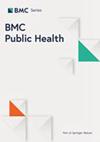摘要
背景:面临多重不利条件(如经济贫困、心理健康状况不佳或家庭虐待)的妇女可能会在怀孕前、怀孕期间以及初为人母期间经历健康方面的不平等。这可能会产生终生的代际影响。本综述的主要目的是确定在卫生和社会保健领域为减少孕产妇或儿童健康不平等而采取的干预措施的范围和效果。第二个目的是探讨这些干预措施与有生活经验的妇女的相关性:对高收入国家旨在减少孕期社会弱势妇女不平等现象的系统综述和荟萃分析进行了概述。我们在截至 2023 年 8 月的 8 个电子数据库中进行了检索,并辅以灰色文献检索。我们纳入了在孕前、产前或产后一年内针对妇女开展的任何个人、医院或社区层面的活动。协议已注册。与有弱势生活经历的妇女举办了两次研讨会,探讨了已确定干预措施的相关性,以及与她们的经历相关的证据差距:共有 36 篇综述(包括 734 项主要研究)被纳入叙述性综述。大多数综述包括在北美进行的研究,质量极低或较低。干预措施分为 11 类。大多数干预措施针对的是单一的社会暴露,针对的是孕期和产后的个人行为。一些高危人群被排除在所有综述之外。家庭干预、社会心理干预、孕产妇护理模式和跨学科护理计划对某些人群的一系列孕产妇和儿童健康结果有潜在益处。我们的生活经验小组认为,这些干预措施有可能满足他们对宣传、支持和信息的共同需求,但也应考虑文化、过去的创伤以及住房和经济等影响怀孕的因素:需要进一步开展高质量的研究,以证明在欧洲卫生系统中可能有效的干预措施的有效性和成本效益。其他研究缺口包括孕前干预、文化知情护理和健康的上游决定因素(PROSPERO:CRD42023455502)。Background: Women facing multiple disadvantage such as financial poverty, poor mental health or domestic abuse, may experience inequalities in health prior to and during pregnancy, as well as into early motherhood. This can have lifelong intergenerational impacts. The primary aim of this overview was to identify the breadth and efficacy of interventions that work across health and social care to reduce inequalities in maternal or child health. The second aim was to explore their relevance to women with lived experience.
Methods: An overview of systematic reviews and meta-analyses from high-income countries that aim to reduce inequalities for women with social disadvantage during pregnancy was performed. Searches were conducted in eight electronic databases up to August 2023 and supplemented with grey literature searches. We included any individual, hospital, or community level activities specific to women during the pre-conception, antenatal or postpartum period up to one year after. The protocol was registered. Two workshops with women with lived experience of disadvantage explored the relevance of identified interventions, and gaps in evidence, in relation to their experiences.
Results: A total of 36 reviews, including 734 primary studies, were included in the narrative synthesis. The majority of reviews included studies undertaken in North America and were of critically low or low quality. Interventions were grouped into 11 categories. The majority of interventions were aimed at single social exposures and targeted individual behavior during pregnancy and the postnatal period. Some at risk populations were excluded from all reviews. There was potential benefit of home-based interventions, psychosocial interventions, models of maternity care and interdisciplinary programs of care for some population groups, across a range of maternal and child health outcomes. Our lived experience group felt these interventions had potential to meet their shared needs for advocacy, support and information, but they should also consider culture, past trauma and factors underpinning pregnancy such as housing and finances.
Conclusions: Further high-quality research is required to demonstrate efficacy and cost-effectiveness of potentially effective interventions in the European health systems. Additional research gaps include interventions prior to pregnancy, culture informed care and upstream determinants of health (PROSPERO: CRD42023455502).

 求助内容:
求助内容: 应助结果提醒方式:
应助结果提醒方式:


